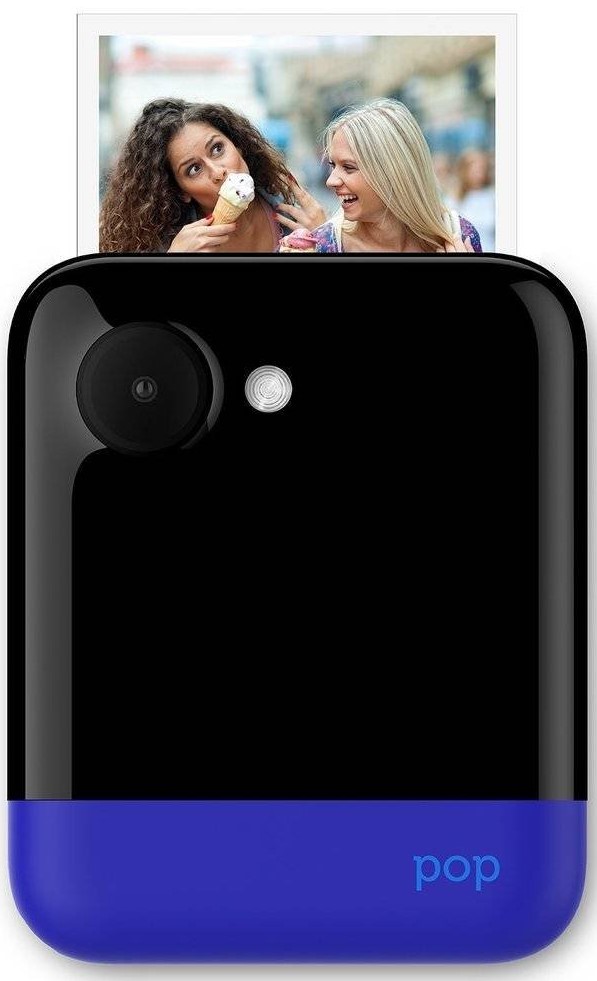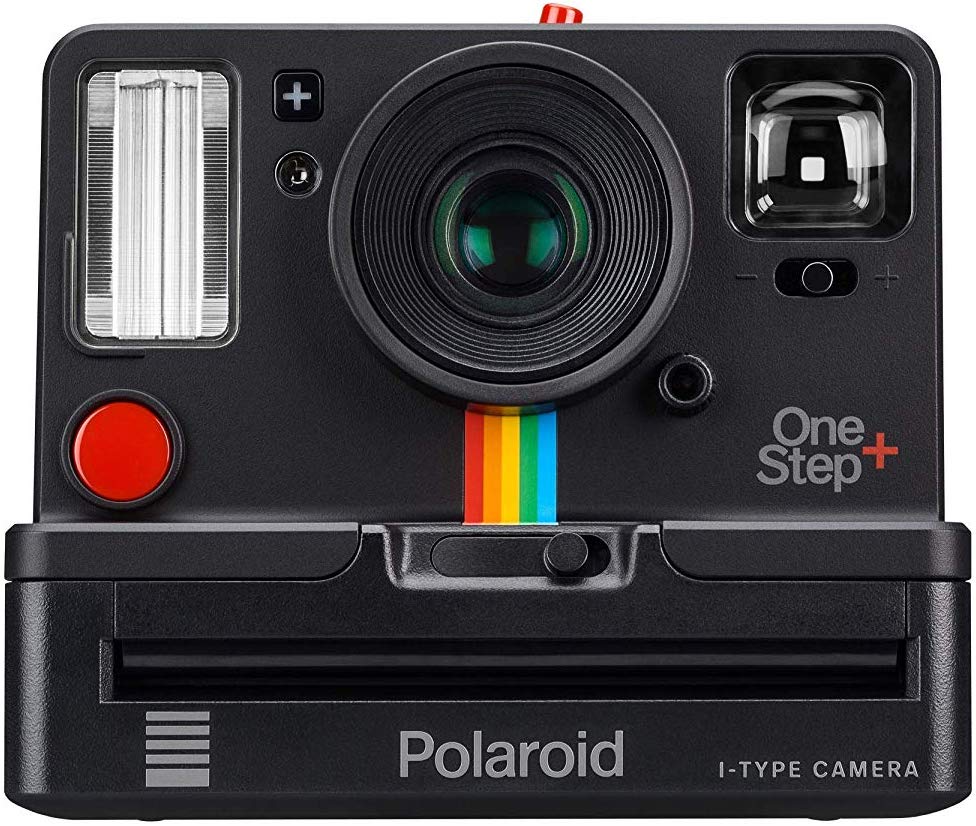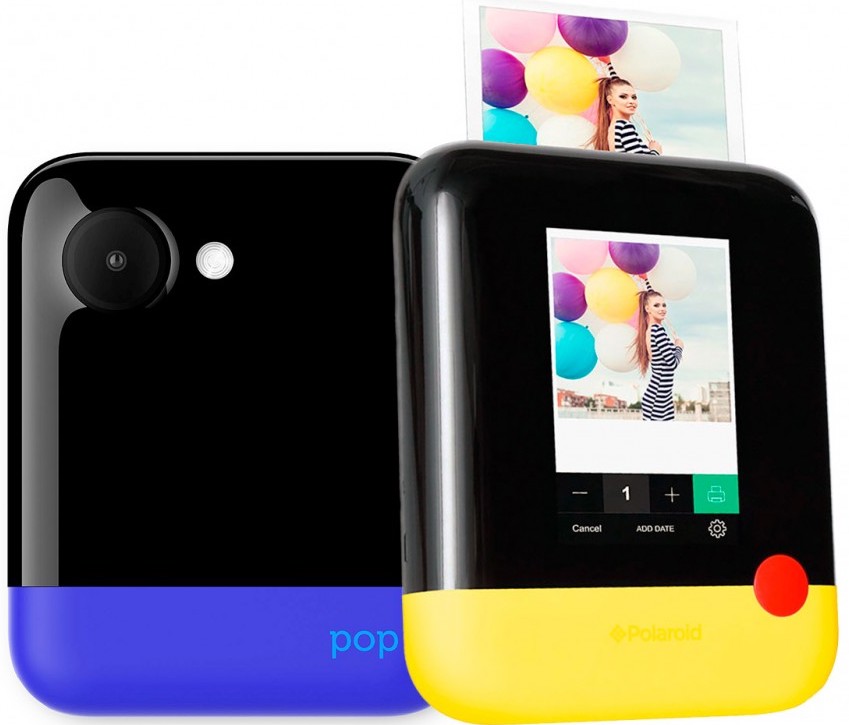Which camera should you buy, the Polaroid OneStep+ or Pop?
Our pick
Polaroid OneStep+


More features
Polaroid Pop


The Polaroid OneStep+ is every bit like the Polaroid OneStep cameras of past decades, except it's been recreated for the digital world. You still can't store your prints for later use, unfortunately, and the film is expensive.
Pros
- A real Polaroid camera
- Uses traditional Polaroid film
- Includes useful mobile features
Cons
- Film outrageously expensive
- Can't store images on the camera
- Though iconic, it's a bulky design
The Polaroid Pop offers a fresh, modern take on the Polaroid cameras of yesteryear. However, it's much more than a camera since you can record GIFs and 1080p/720p HD videos with the device too. Just don't expect super high-quality prints from it.
Pros
- 1080p/720p HD video recording
- Capable of using microSD up to 128GB
- Touchscreen display adds on-demand features
Cons
- Glossy plastic on prints gets scuffed easily
- Photos are slow and appear low resolution
- Many photo-editing features are more comfortable to perform on your mobile device
The Polaroid OneStep+ and Polaroid Pop represent two different takes on how an iconic brand from the 1970s and 1980s can get back on track in the 21st century. Where you stand on authenticity and how many modern features you want will likely determine which camera is best for your household.
Polaroid OneStep+ vs. Pop: Nostalgic digital camera showdown


Source: Bryan M. Wolfe / iMore
Before digital cameras — and then mobile devices — became the rage, the world was in love with instant cameras. And if you owned one of these, it was almost certainly a Polaroid. These cameras were unique because they used square format integral film, which contained everything you needed to produce and develop an image in virtually realtime, including the negative, developer, fixer, and more. This concept remains mostly intact on the next-generation OneStep cameras such as the 2017 OneStep 2 and 2018 OneStep+.
The Polaroid Pop, like many others, also produces instant photos. In this case, however, it uses the newer Zink technology, which consists of heat-sensitive layers with cyan, magenta, and yellow dyes in colorless form.
| Polaroid OneStep+ | Polaroid Pop | |
|---|---|---|
| Dimensions | 5.9 × 4.3 × 3.8 in | 6 x 4 x 1 in |
| Design | Traditional Polaroid camera | Bulky, thick, rounded square |
| Battery | 1100mAh | Bulky, thick, rounded square |
| Power | Rechargeable via USB | Rechargeable via micro USB |
| Connects to phone | Yes via Wi-Fi | Yes via Wi-Fi |
| Compatible phone app | Yes | Yes |
| Digital copies | Technically, no | Yes (microSD up to 128GB) |
| Review pictures before printing? | No | Yes |
| Video recording | No | Yes, 1080p/720p HD |
| Touch screen | No | Yes |
| Built-in photo editing | No | Yes |
| Flash | Yes | Yes |
| Self-timer | Yes | Yes |
| Manual lighting adjustments | Yes | Yes |
| Close-up shots | Yes, with Portrait Mode | Yes, digital zoom |
| Prints | Polaroid 4.2x3.5" inch film | Polaroid 3.5x4.25" inch Premium ZINK paper |
If you're looking for the Polaroid camera with the most features, the Polaroid Pop is the camera for you. However, the choice shouldn't be that simple.
Yes, the Polaroid Pop allows you to store images both on the camera and on microSD cards. And yes, it also offers video recording and the ability to create GIFs. However, smartphones can do this too, and in most cases, are much better at it than the Polaroid Pop. The most significant benefit of owning a Polaroid Pop is its ability to print photos that are stored on your mobile device. However, the 3.5-by-4.25-inch Zink paper only provides low-resolution prints, at best.
The Polaroid Pop isn't better because it provides more features — you can do a lot of the same things better on mobile devices.
By contrast, the less expensive Polaroid OneStep+ is meant to allow folks to take imperfect, iconic Polaroids that capture a moment in the quickest time possible. It also offers a limited number of advanced features through the Polaroid app, including a remote trigger, double exposure, light painting, self-timer, manual mode, and noise trigger. The OneStep+ also offers a portrait lens with a minimum focusing distance of 89mm for the first time (the lens on traditional Polaroid cameras provided distance up to 103 mm only).
Polaroid OneStep+ vs. Pop: Which one is right for you?
If you're looking to buy an instant camera (as opposed to a digital camera), go with the closest thing to the original, in this case, the Polaroid OneStep+. Yes, the film for this camera is a little bit more expensive, but we believe it offers better prints than Zink Paper, so it's worth the premium price. The Polaroid Pop isn't better because it provides more features — you can do a lot of the same things better on mobile devices, including video recording and the post-processing of photos.
Welcome back, Polaroid


Polaroid OneStep+
Iconic brand reborn, but not entirely revamped
Live the authentic Polaroid experience for the first time or the hundredth with the Polaroid Originals OneStep+, which is available in black and white. It doesn't have the capabilities for internal storage, but the prints are high quality, and you'll be getting an authentic experience.
Is newer better?


Polaroid Pop
Do more
The Polaroid Pop is a workhorse of an instant camera. You get 20MP, 1080p/720p HD video recording, built-in photo editing tools on the touch screen, and selective printing, so no sheet is wasted. Still, unless you're planning on using this camera as your primary on-the-go photo printer, you should go with the OneStep+.
We may earn a commission for purchases using our links. Learn more.





